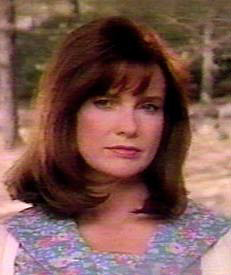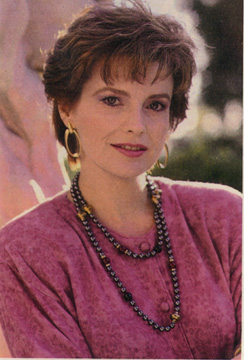



Contents of this Molly Dodd web site:
(also available on the left frame, if you prefer)



The Days and Nights of Molly Dodd is Copyright © 1986-1990 by You & Me, Kid Productions; the exerpts found here are used without permission, but are brief enough to comply with copyright law as I understand it. All descriptions and compilations of this web site are Copyright © 1999 by John T. Crawford. (I only say that in case of the unlikely event of some large for-profit web site wanting to use my stuff, in which case they should contact me first.)
The Days and Nights of Molly Dodd is my all-time, number one favorite television show, yet unlike other favorites of mine (Cheers, Seinfeld, Monty Python's Flying Circus, Hill Street Blues, or even I, Claudius, for example), it was never a big hit, so there is relatively little information about it to be found on the web: the last time I looked, I could find only one episode list, which contained several inaccuracies. Hence my interest in creating this site.
The show is usually described as a "dramedy," which is a form that combines situation comedy with more dramatic elements. Dramedies flourished briefly in the mid-1980s; other examples included Buffalo Bill and The Slap Maxwell Story, both fine shows starring Dabney Coleman, and both created by Jay Tarses, who then surpassed his previous accomplishments by creating The Days and Nights of Molly Dodd. The dramedy form never really caught on, but I believe its influence lives on in such current "serious comedies" as Sports Night and especially Ally McBeal, and perhaps also in sardonically humorous, tongue-in-cheek dramas like Buffy the Vampire Slayer and the regrettably short-lived Cold Feet. Many have suggested that Molly Dodd also influenced the single motherhood storyline of Murphy Brown, which even included some initial uncertainty about which of two men was the father, though Murphy's version was less daring than Molly's: both of Murphy's men were white, and Murphy soon declared that she had only actually slept with one of them -- possibly because the producers were afraid of Dan Quayle, I don't know.
Molly Dodd began as a mid-season replacement on NBC in the summer of 1987, on Thursday nights between Cheers and L.A. Law (each of which is mentioned in an early episode); consequently, its first season consisted of just thirteen episodes. The show was again a mid-season replacement on NBC in the spring of 1988 in the same time-slot, and once again thirteen episodes were shot, though NBC never bothered to broadcast the season finale. When NBC passed on the show for the fall season (presumably the show was just too good for network TV), it was picked up by the Lifetime cable network, which began by rerunning the first two seasons, and then added a season of thirteen new episodes for each of the next three years. That makes a total of five seasons of thirteen episodes each, for a grand total of just sixty-five episodes.
Perhaps shorter seasons make it easier to keep the quality level high; I've noticed that most of the best British shows use either six or thirteen episodes per "series" -- which is what we Yanks would call a "season." Or perhaps creator Jay Tarses simply assembled an exceptionally gifted ensemble of writers, actors, and directors (including himself, on all three counts). Whatever the reason, The Days and Nights of Molly Dodd featured the highest level of consistently excellent writing, acting, and also music -- an important element of the show since Molly's ex-husband, Fred, is a jazz saxophone player, and Molly dabbles a bit herself as a singer and piannist -- that I have ever seen on television. (The directing is fine too, but I tend to think that directors generally get more credit than they deserve; not that they are unimportant, but they rank third, I believe, after the writers and actors.) Even when the quality dipped a bit in the last two seasons, probably due to the lessening involvement of Jay Tarses, it was from the best show ever to perhaps the seventh or eighth best, in my not-so-humble opinion.

If you have never seen the show, by this time you are probably wondering: what is it about? It centers, of course, on Molly, who is a divorced woman in her mid-to-late thirties (she ages from 34 to 40 during the course of the series), living on the upper west side of Manhattan. The "Days and Nights" of the title refer to the fact that the show is equally concerned with both her working and her personal life; unlike a typical workplace (Cheers, Taxi), family-based (All in the Family, Mad About You), or friend-based (Seinfeld, Friends) show, it combines all aspects of her life: in this sense, it could be called a late 80s/early 90s update of the Mary Tyler Moore show. But Molly, while basically a nice and very likeable person, is not as stable and conservative as the midwestern Mary. As a poet, singer, and piannist, Molly has an artistic temperment; she has, as her mother puts it, a "parapetetic resume," and holds about six different jobs during the course of the series, with some periods of unemployment in between. Unlike most characters seen in most film and television, but like many actual people, she is not quite sure what she wants to do with her life. Midway through the first season, Molly even comes pretty close to something like a nervous breakdown, so she seeks psychotherapy; the therapist turns out to have her own problems, with humorous results. (You can read more about Molly in her description on the Characters page.)
Aside from Molly herself, the most important characters are her mother (Florence), the elevator man in her building (Davey), her ex-husband (Fred), her best friend (Nina), and two men that she becomes involved with in the second and third seasons: her boss at Goodman Books (Moss) and a black police detective (Nate) that she meets after her best friend's apartment is robbed. While all these characters, and many more, appear frequently on the show, there is no standard cast that must appear in every episode. Aside from Molly, the only character that is in every single episode is Davey the elevator man, which is logical since Molly sees him every day as she leaves and enters her apartment. Molly's mother, Florence, is in almost every episode (all except six), due to her dual role as the primary narrator and a frequent visitor to Molly's apartment, sometimes unexpected and unwelcome (though not always); but like other characters, Florence does not appear if there is no natural reason for her to be there, simply to give the actor work that week. Nor is there any artificial assumption that the characters all know each other and hang out together at the local bar or coffee shop; some of the characters never meet, and those that do meet for natural, realistic reasons, such as a chance meeting at a restaurant, or because Molly deliberately introduces them. In other words, the show eschews the artificial conventions of most television series. One episode in the final season even pokes fun at the unique conventions that developed during the course of the show, such as Molly's mother criticizing her during the opening narration, for example.
However, the mere avoidance of convention alone would not give the show its exceptional charm, which combines realism, an ironic sense of humor, and whimsical fantasy or dream sequences. Rather than try to describe the show's unique charm further, I refer you to the excerpts I've assembled on the Quotes page (to which I hope to add more in time). Or better still, look for the show itself the next time it is rerun on the Lifetime cable network -- and no, I don't get paid to say that!